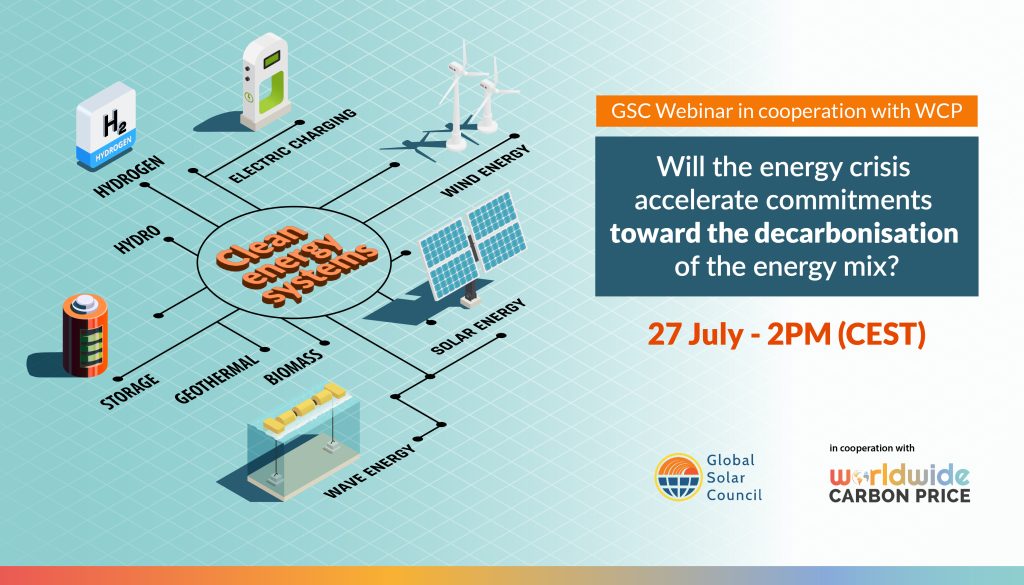Webinar | Will the energy crisis accelerate commitments toward the decarbonisation of the energy mix?

GSC Webinar in cooperation with WCP
While the world’s economies recover from the Covid pandemic, demand dynamics for many goods have led to skyrocketing energy prices. The Russian invasion of Ukraine has exacerbated the energy shock and highlighted the negative effects of dependence on fossil fuels. Are such extraordinary spikes in prices able to generate endogenous shifts in energy systems and consumption habits? The webinar will investigate effects already visible among the public, private and household sectors, and explore how a medium-to-long-term transition to renewables can lead countries to energy security while lowering energy costs, with public resources employed along with this target rather than flowing into short-term tools to mitigate rising bills. International experts will also explain how future scenarios to support a global energy transition should entail carbon pricing instruments, which pose an adequate and programmable price signal to the energy market promoting smooth and safe decarbonization.
The EU is of course on the frontline of such a global phenomenon. Institutions-wise, the RePowerEU program by the EU Commission has set the goal of getting rid of the gas dependence on Russia. Studies by Regulatory Assistance Project (RAP) and others affirm that 2025 is a feasible time limit to accomplish this. The International Energy Agency (IEA) has issued a 10-point plan to support Europe in reducing its dependence. Can the EU become a model for decarbonization of the energy mix or will the hopefully near ceasefire in Ukraine and the search for alternative gas sources lead to an even greater dependency? What would be the implications of the proposed inclusion of gas investments in the EU sustainable assets taxonomy?
In this webinar we will investigate:
- What caused the energy price surge
- Post-covid global economy surge in fall 2021
- Ukraine invasion
- What’s the likelihood of overinvesting in fossil fuels and therefore creating stranded assets as a reaction to the price spike and supply crisis
- To what extent this energy crunch might or should have consequences on renewables and energy efficiency policies
- Reactions from public and private sectors
- How carbon price policies interact with fossil fuels price
- Should carbon pricing instruments counteract energy price volatility?
DRAFT AGENDA
14:00 Introduction
- José Donoso, Chairman of Global Solar Council
14:10 Debate
- Moderator: Michele Governatori, Coordinator Scientific Committee of Worldwide Carbon Price
- Gianni Silvestrini, Scientific Director, Kyoto Club
- Natalia Fabra, Profesor of Economics, Carlos III University
- Tetchi Capellan, Secretary General, Asian Photovoltaic Industry Association (APVIA)
- Gregory Wetstone, President & CEO, American Council on Renewable Energy (ACORE)
15:25 Conclusions
- Gianni Chianetta, CEO of Global Solar Council & President of Worldwide Carbon Price
15:30 End of Event